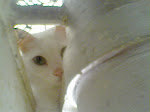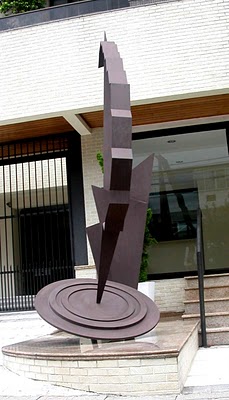Taneda Santöka Free style haiku, Santōka is often ranked along side Ozaki Hösai, a fellow student of Seisensui. They both suffered from the ill effects of their drinking habits and were similar in their reliance on Seisensui and other patrons of the arts for aid and support. The literary tone of their poems, however, differs .
Haiku excerpts from Hiroaki Sato’s translation of Santōka’s Grass and Tree Cairn

I go in still blue mountains
Wakeitte mo wakeitte mo aoi yama
Fluttering drunk leaves
horohoro yöte ki no ha chiru
Westerners like to conquer mountains;
As for me, I like to taste the mountains.

Taneda Santooka 種田山頭火(1882-1940)a haiku nonconformist who cast aside all the rules including the 5-7-5 syllable structure, is also associated with Matsuyama. Santoka, an ordained Zen priest, after spending most of his life wandering all over the country as a begging monk, chose to settle in Matsuyama only to die 10 months later. The humble cottage where he dwelt -- Isso-an (A Blade of Grass Hermitage) is preserved north of Ehime University.His books and documents are also preserved in Shiki Memorial Museum.

Hōsai (尾崎 放哉) Ozaki Hoosai, Ozaki Hosai 20 January 1885 - 7 April 1926An alcoholic, Ozaki witnessed the birth of the modern free verse haiku movement. His verses are permeated with loneliness, most likely a result of the isolation, poverty and poor health of his final years.
I go in still blue mountains
Wakeitte mo wakeitte mo aoi yama

Fluttering drunk leaves
Horohoro yōte ki no ha chiru Haiku excerpts from Burton Watson’s translation For All My Walking
there
where the fire was
something blooming
yake-ato nani yara saite iru
feel of the needle
when at last
you get the thread through it
yatto ito ga tōtta hari no kanshoku

snow stopped
in the voices of children
the sun shines—









2 comments:
Inspirational! - Really!
MARVELLOUS THIS GUYS ,THE BEST OF HAIKU POEMS.
Post a Comment